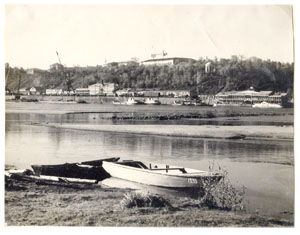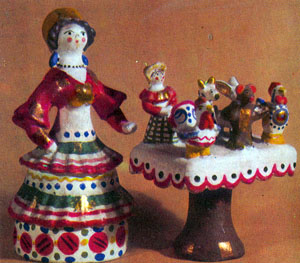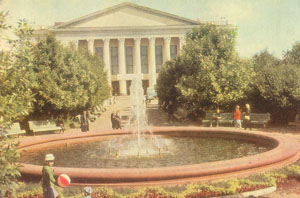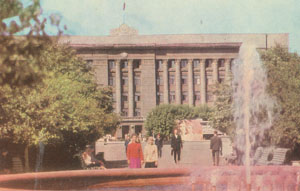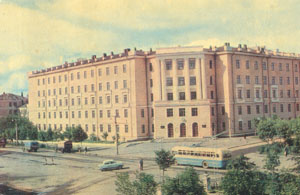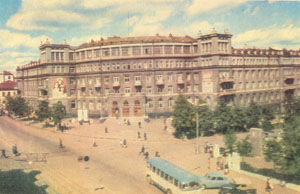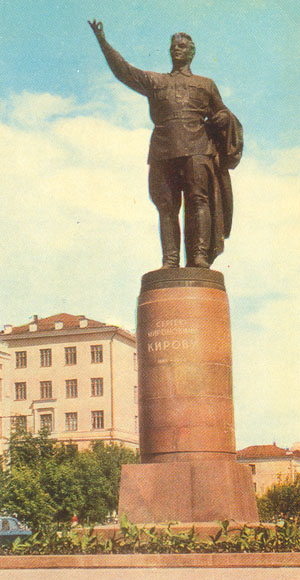
Another Party CourseCHAPTER 11 This time I arrived in Kirov not as a student attending a course organized by the party, but as a representative of the Komsomol Central Committee and a lecturer on Pioneer activities. There was a group of Komsomol members from the Shava orphanage and another one from the Mengery orphanage and these two groups of students were, of course, closer to my heart than the others. I prepared my lectures in writing and my memory took me back to the summer of 1941, when I also had to give a series of lectures on Pioneer activities. At first my life in Kirov was not at all easy: I simply suffered from hunger. I was ordered to have my meals at a cafeteria where they served us a watery soup and some non-descript main dish. I became so thin and "light-weight" that I had dizzy spells, but I did not realize that this was because of the poor food I had. I thought these were the after-effects of my Mengery illness. That was party true, but after a while it was arranged that I should have my meals at the Regional Party Committee cafeteria, where I received decent food (that even included a compote and a white roll!!!), and my dizziness disappeared. My living conditions were quite bearable. I lived in the dormitories, in a room with four other "ladies". Sometimes in the evenings we made some pancakes from some kind of blackish flour which we fried in some sort of vegetable oil. We even had "coffee" with milk. I cannot really say who managed to obtain these "goodies" and how this was done. Time went by and we had all sorts of "events" during our course. I also met some nice people and some not-so-nice ones, as it is usually the case. Since these were summer months we went to walk in the park and to other places and we tried not to think about sad or difficult things. After all, it was the summer filled with war victories. This is the view of Kirov from the other side of the river, as seen from the village of Dymkovo.
Here are a few postcards depicting Dymkovo toys.
Here are also some postcards of some of the public buildings in Kirov:
the Institute of Agriculture, the central city hotel
and the monument depicting S.Kirov,
After the course ended the Komsomol members were sent to join an operation group that was to have its headquarters in the recently liberated town of Daugavpils in Latvia. "My" Komsomol members were among them while I was to go back to the Shava orphanage. It was August and my trip this time was not a difficult one. I was impatient to go "home". Later on, after Riga was liberated, our Director, Elvira Yakovlevna, "tricked" me: without my knowledge she had arranged it with the Latvian officials in Gorky that she should go back and leave me to serve as the director. I had to comply as I had no choice, even though after my experience in the kindergarten at the Yaroslavl' 'sovkhoz' I promised myself never ever to serve as any kind of director. This time the decision was made and I had to take up the position with only the "Babushka" and another teacher to help me. We lived in Shava waiting for orders to go back to Riga. Little by little the children were leaving and there were only about 30 children left: some from Liepaya (Libau) and some others from regions in Latvia not yet liberated. There were also those whose parents did not yet make contact with them. The children felt sad even though they felt glad that their friends were leaving. The letter, dated the 24th of February 1945, said: "Dear Lyubov' L'vovna! The teachers' collective of the Shava School greatly appreciates your assistance rendered to our school as a teacher, educator, Pioneer leader and a political instructor of the teachers themselves. We would like to thank you very much for your work and we wish you great success in your future activities for the benefit of our mutual Homeland, the Soviet Union, and for the benefit of your beloved Homeland, the Soviet Latvia. We would like to wish you good health and a long life. "
|
